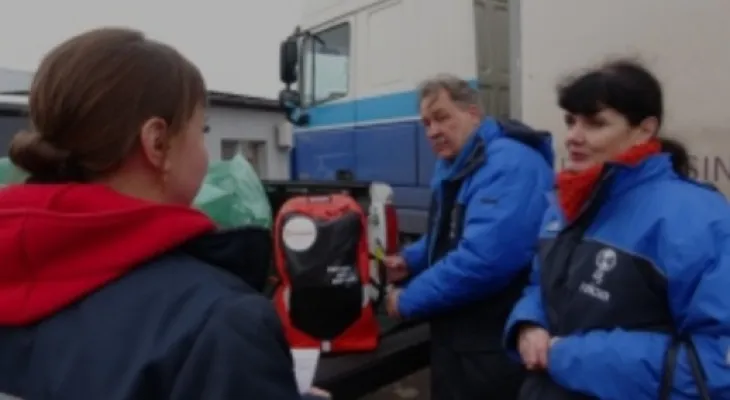Search here
Newspaper
Search here

Arab Canada News
News

Published: November 28, 2022
A small convoy carrying 20 tons of medical supplies and humanitarian aid headed to Balakliya, a part of the country that the Ukrainian army regained in September after six months of brutal Russian occupation.
Among the convoy that crossed the border last Friday to help the afflicted areas was Dr. Christian Carrier, a pediatrician from France, who manages with his partner Tetiana Hrynshchykova the International Medical Cooperation Association, a non-governmental organization supported by foundations from Canada and Ukraine and the Ontario government.
The convoy took five hours to travel from a warehouse in Poltava to Balakliya, where the roads were filled with crater holes from falling bombs, in addition to frequent stops at military checkpoints for protection against Russian infiltration.
Canada is considered the third most generous contributor to Dr. Carrier's group, according to him, which also received donations from French, American, and British sources.
Also, Carrier added that his organization is well equipped and familiar with the terrain and roads, focusing its aid in a few administrative regions in the northeast of the country. It also has more than 800 items available, from general or specialized medicines that hospitals and pharmacies in disaster areas can request.
After the convoy moved again to continue its mission, it passed through the city of Chuhuiv, a municipality where the International Medical Cooperation Association placed medical supplies before the war but was later occupied, where Carrier, who has lived in Ukraine since 2006, said: "The Russians took everything," and described the health condition of those who lived for weeks in shelters as pitiful and resembling "zombies." Some even lost their teeth, and he said visiting doctors were shocked by what they found.
Later, upon arriving in Balakliya, a deserted city with some buildings completely destroyed, the aid worth 4 million dollars was unloaded into an old warehouse, where it will later be distributed to eight municipalities in the region.
The small welcoming committee for the convoy included the administrative head of the Izium district in the south, Stepan Maselsky, who stated in an interview: "This aid is very important because we are still at war. The invader destroyed our infrastructure. Just two days ago, we had no electricity, no water, no medicine, no medical supplies, and no good food."
Comments